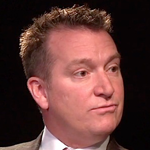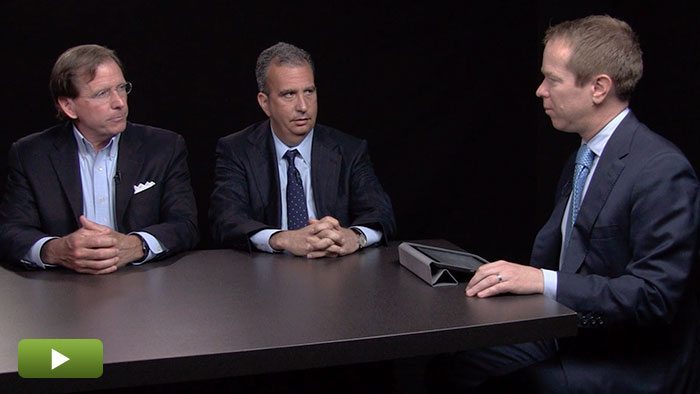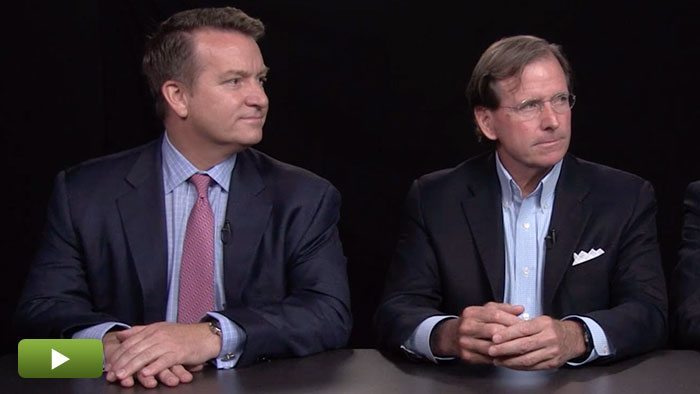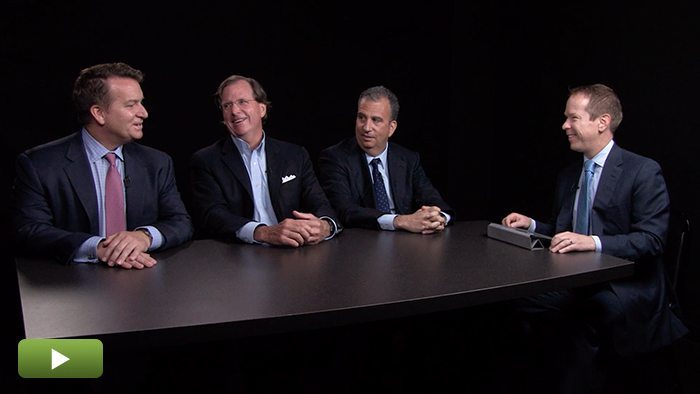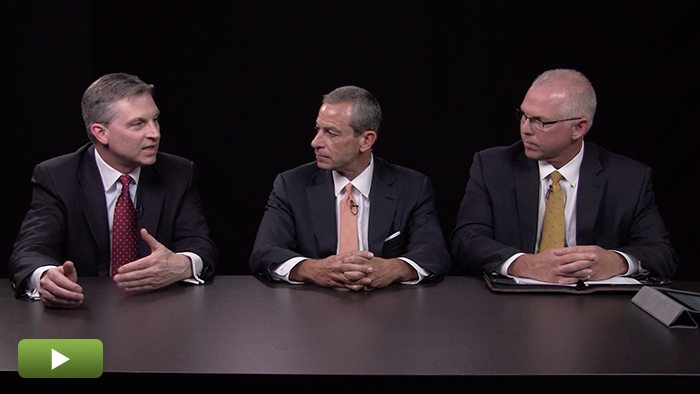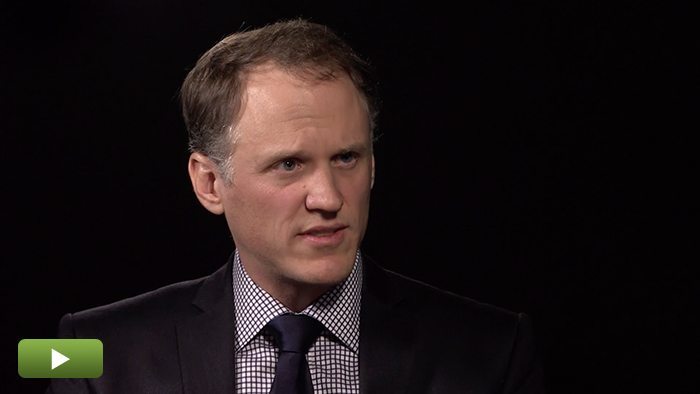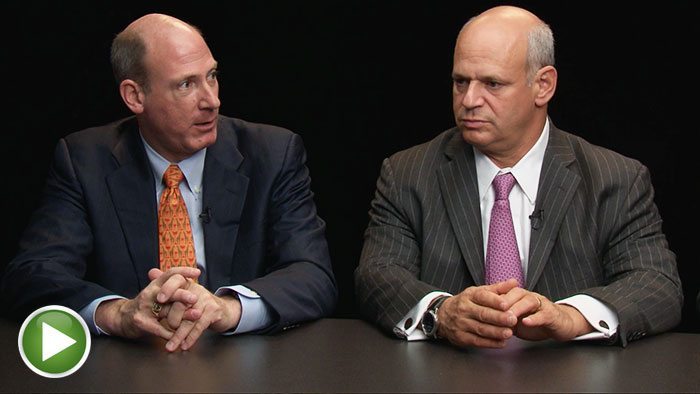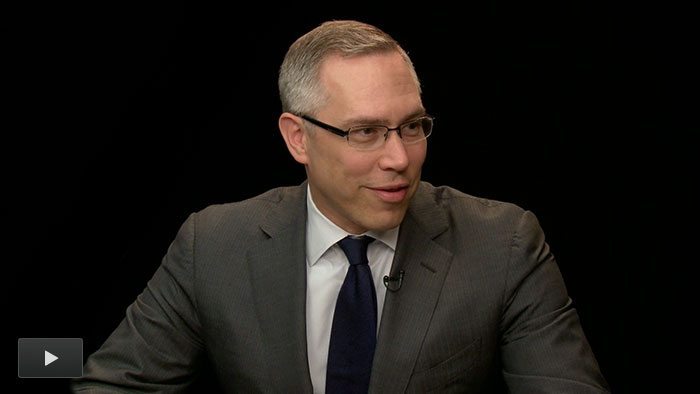PE Firm Founders Need More Than Deal Skills
Doing private equity deals and building a private equity firm are two very different things, warn three experts. This panel discusses sage advice from two GPs who launched and run middle-market private equity firms, and an administrator who has helped launch many GPs.
Transcript Download Transcript
PE Firm Founders Need More Than Deal Skills
Lessons Every Founder Should Learn
David Snow, Privcap: Today, we’re joined by Kenneth Clay of Corinthian Capital Group, Bob Nolan of Halyard Capital, and Steve Millner of Gen II Fund Services. Gentlemen, welcome to Privcap. Thanks for being here.
We’re talking about things you wish you’d known before you launched your private equity firm. We have two private equity firm founders here: Kenneth and Bob. Of course, Steve, you have helped more than 100 private equity firms launch, so we’re very interested in your perspective as well.
Let’s start with an observation that all of you have made: that the ability to successfully do private equity deals does not necessarily mean you have the ability to successfully build a private equity firm, or at least that there are different skills involved.
Let’s start with you, Kenneth. Talk about the process of forming your own firm and coming to the conclusion that there is a different set of skills needed to actually build a firm.
Kenneth Clay, Corinthian Capital Group: Most people who have started a firm have experience in the industry, obviously, and they mostly come from the deal side. I don’t think a lot of folks in the back office really want to start their own firm to optimize that. You’ve got deal guys that have successful track records—they’re all intelligent, successful individuals, so they decide to strike out on their own. What they probably underappreciate is that a whole infrastructure has to be created, and you really have to manage a business, which is different from being a successful investor. There are lots of pieces that go into that.
Snow: Do you agree, Bob? Are there different muscles that need to be flexed in building a sustainable private equity firm as opposed to doing deals?
Robert Nolan, Halyard Capital: There is no question about it. If you look at the history, as Kenneth touched on, we all tend to have deal-creating, deal-doing strengths that were formed in the private equity field, but even before that in investment banking. There is a long history in financial services of people being pushed from a transactional role to a managerial role, and it being ill fitting.
There is no mistaking the fact that people are the most essential ingredient in terms of setting up your own fund. In our case, what’s a bit different is I’m a spun-out group from an institution. So, the difference was that there was an organization in place, it just was easily subsidized, and then suddenly, you’re easily thrust into a position where you need to create it again on your own. As Kenneth touched on, it’s not a skill set you’re born with—it’s one that is found over time.
Snow: Steve, as someone who has helped many firms get launched, have you observed that many deal guys and gals tend to assume they have managerial skills that they may need to work on a bit?
Steve Millner, Gen II Fund Services: As an advisor, we get a front-row seat to how these funds are formed. As both Kenneth and Bob said, these firms often come together and at the nucleus are the deal professionals. The deal professionals are the team that comes together first, then amongst them, they figure out what they need. “Do we need a CFO? Do we need general counsel? What is the size of the firm?” Lots of things go into this. More recently, you have the regulatory burden, which has added new weight to how you think about configuring your firm.
Snow: Bob, your firm spun out of Bank of Montreal, correct?
Nolan: Correct.
Snow: Was there a different mix of professionals needed after you got out of the broader infrastructure of the bank?
Nolan: There was no question about it. Obviously, we were subsidized in some form by the organization, and we were able to draw on all of the elements embedded in that institution. It’s a mixture of in-sourcing and outsourcing those services, be they accounting, compliance, or legal. There are a number of ways in which to address those issues.
For us, it was a matter of looking at both the outside world and the way they provision, let along hiring inside people for that purpose. The skills are administrative, financial, obviously deal-doing, and lastly, managerial. That takes a mixture of people and skill sets, and, as I said, it may well take a mixture of in-sourced and outsourced capabilities.
Snow: A quick follow-up question for both of you: in managing your own firm, did you find yourself performing tasks or overseeing certain functions that you hadn’t anticipated before you spun out?
Nolan: Without question, anticipating the SEC being such a close partner in my development of the fund. That happened after we had raised the capital and after we’d spun out. It had not been anticipated. Back to the point, we had to both talk to a number of compliance people who could assist us in putting together the right procedures, processes, and manuals. Again, there was an in-sourced element in terms of naming and designating a chief compliance officer, as well as bringing in outside assistance and maintaining that assistance for annual reviews that had not been anticipated when we first raised the money. I would say that was the one that surprised us.
Clay: I had a similar experience. In fact, I was traveling when the firm decided to elect or appoint a chief compliance officer. As the one who was absent, I drew the short straw, so I hadn’t counted on that. I went through the whole process of becoming compliant with Dodd Frank and all the relevant things that go with that.
In addition, there are things you don’t really focus on that are relevant. For instance, I was able to use some of the deal skills in connection with negotiating health-insurance benefits. As we were building out our space, we gave the landlord certain financial assurances and some of those fell away in negotiating for early releases of deposits, escrows, and the like. So, there were lots of things you don’t anticipate because you just can’t know everything. Some of those things were net new activities and others drew on some deal skills because they were pertinent to what we were doing.
Millner: One interesting thing we see is that funds that come to market and the LPs have become more sophisticated, as have their consultants. Now, when they come and express interest, and they meet up with Kenneth and Bob, they’ve got due diligence about “yea” thick.
There are a bunch of questions that you start to realize, you have gaps. Frankly, for us, we’re getting more and more of these DDQs sent our way and we can fill out the back-office piece, and cyber security, disaster recovery, and business continuity, on behalf of our clients. The LPs are getting more sophisticated. They’re also forcing the issue in terms of what the gaps are that you need to fill.


